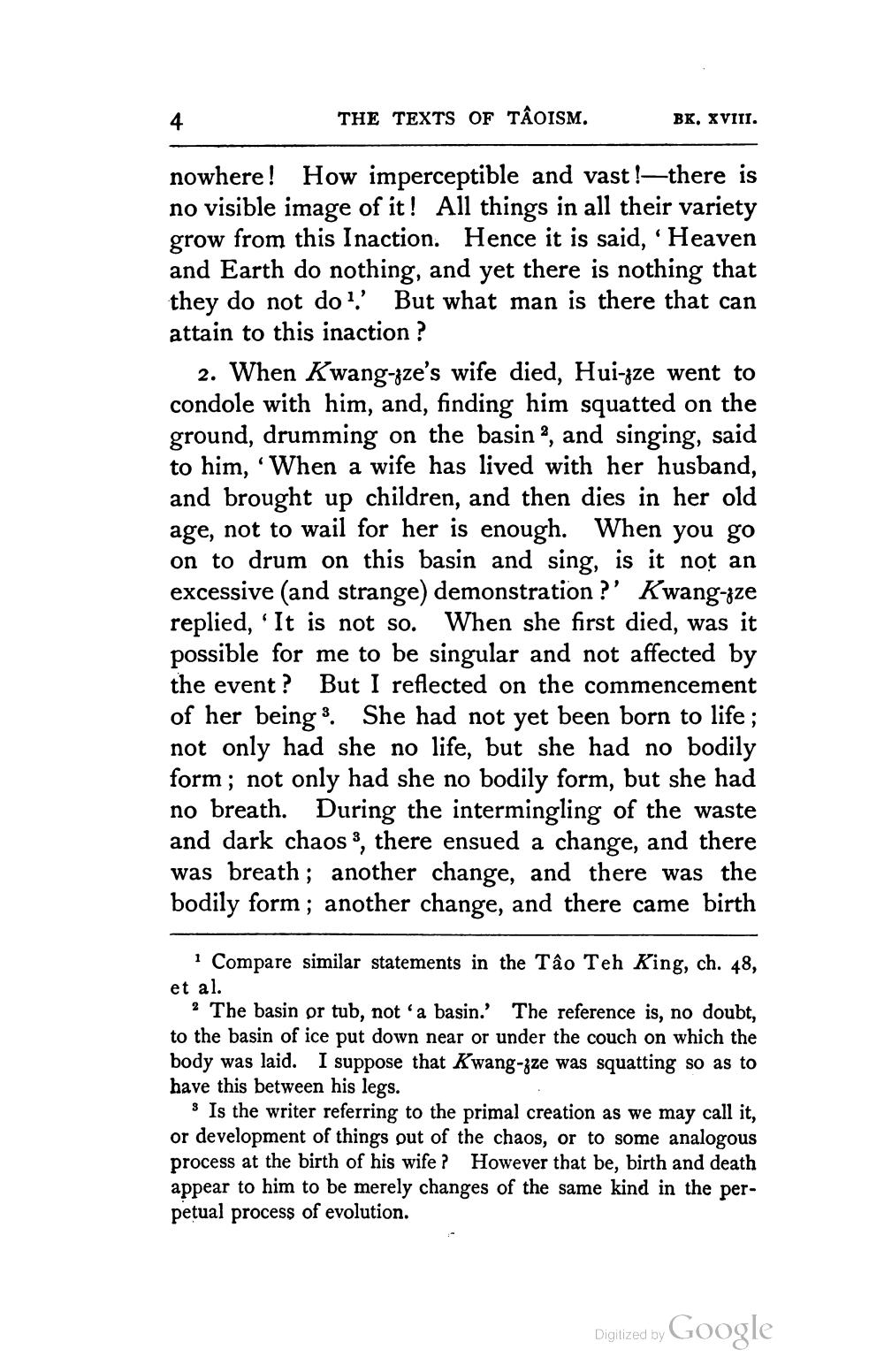________________
THE TEXTS OF TÂOISM.
BK, XVIII.
nowhere! How imperceptible and vast!—there is no visible image of it! All things in all their variety grow from this Inaction. Hence it is said, 'Heaven and Earth do nothing, and yet there is nothing that they do not do 1.' But what man is there that can attain to this inaction ?
2. When Kwang-zze's wife died, Hui-zze went to condole with him, and, finding him squatted on the ground, drumming on the basin , and singing, said to him, 'When a wife has lived with her husband, and brought up children, and then dies in her old age, not to wail for her is enough. When you go on to drum on this basin and sing, is it not an excessive (and strange) demonstration ?' Kwang-zze replied, 'It is not so. When she first died, was it possible for me to be singular and not affected by the event? But I reflected on the commencement of her being 3. She had not yet been born to life; not only had she no life, but she had no bodily form; not only had she no bodily form, but she had no breath. During the intermingling of the waste and dark chaos 3, there ensued a change, and there was breath; another change, and there was the bodily form; another change, and there came birth
i Compare similar statements in the Tâo Teh King, ch. 48, et al.
? The basin or tub, not a basin.' The reference is, no doubt, to the basin of ice put down near or under the couch on which the body was laid. I suppose that Kwang-zze was squatting so as to have this between his legs.
s Is the writer referring to the primal creation as we may call it, or development of things out of the chaos, or to some analogous process at the birth of his wife? However that be, birth and death appear to him to be merely changes of the same kind in the perpetual process of evolution.
Digitized by Google




